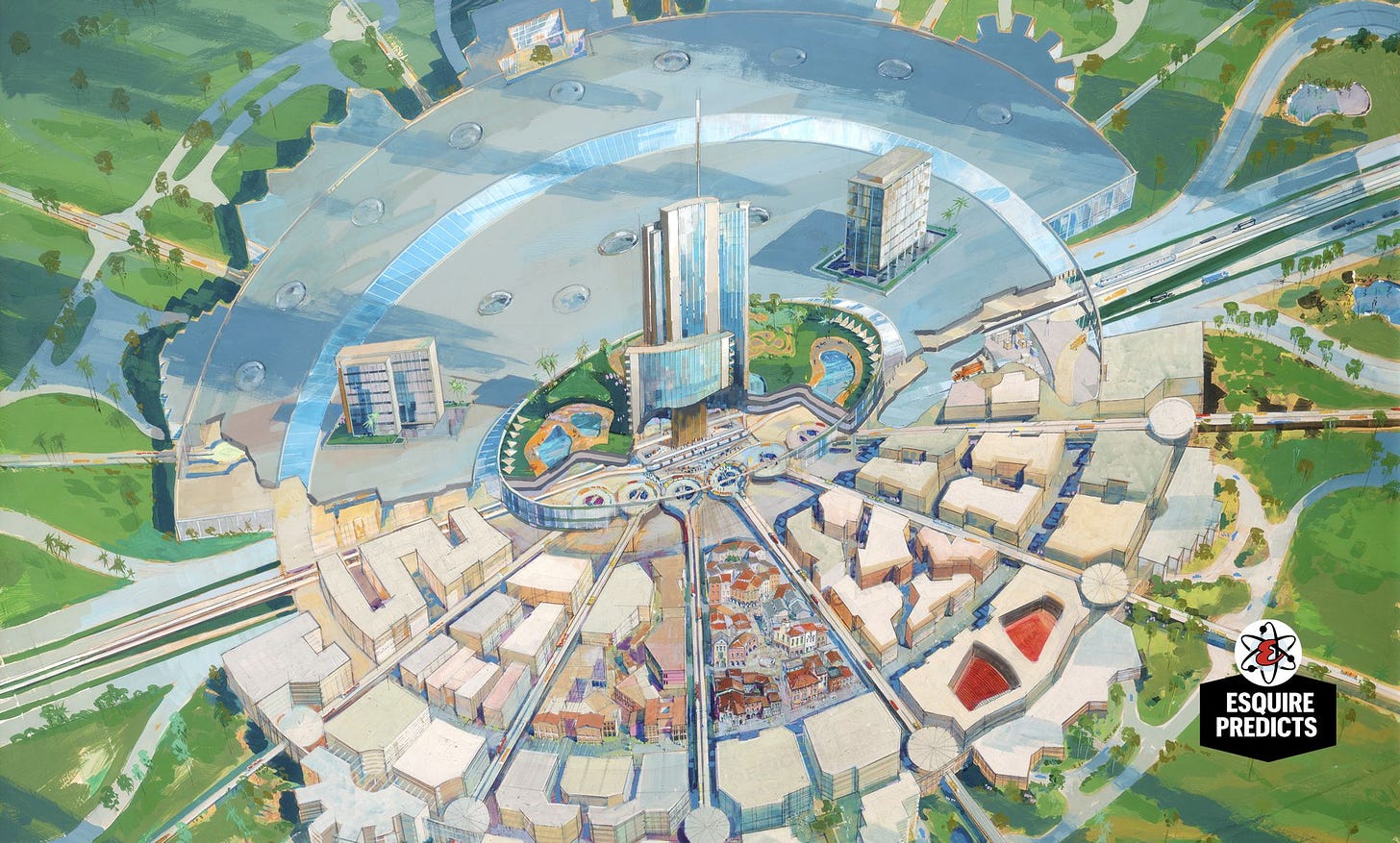“The bonds will be paid by Disney. They will be paying taxes, probably more taxes. They will follow the laws that every other person has to do, and they will no longer have the ability to run their own government.” – Governor Ron DeSantis, at a Fox News town hall (April 28)
The story of how the Disney Corporation came to possess the unique ability to “run their own government” on a swampy tract of land in Central Florida is documented in Richard Foglesong’s remarkable book, Married to the Mouse: Walt Disney World and Orlando. Foglesong, a retired Professor of Politics at Rollins College, has become a sought-after commentator in the wake of Florida Governor Ron DeSantis’s move to revoke the special privileges granted to Disney over 50 years ago. The proximate cause? Disney’s vocal opposition to Florida’s new “Parental Rights in Education” law (HB 1557), sometimes called the “Don’t Say Gay” bill.
DeSantis says he is just leveling the playing field, and finally treating all corporations the same, but given his status as a rising star in the Republican Party – known for being pro-growth – one might ask why DeSantis isn’t instead giving more legal autonomy to neighboring theme park resorts like Universal Studios, rather than putting an end to one of the most successful experiments in private governance ever to be attempted?
Hong Kong is often cited as the greatest growth miracle of the 20th century – demonstrating the power of legal autonomy and the free enterprise system to supercharge a city’s economic engine. Free market Hong Kong outperformed communist China so spectacularly that the Communist Party had to effectively admit defeat and copy the Hong Kong model in establishing its Special Economic Zones throughout the country.
And yet despite Hong Kong’s growth miracle, Walt Disney World in Orland Florida may be an even better poster child for charter cities – a truly Magical Kingdom, that continues to produce growth and prosperity for the surrounding region. The population of Orange County, Florida, doubled in less than thirty years at the behest of Disney executives and the business-friendly government based in Orlando. The secret sauce behind this sensational growth was the agreement to structure the theme park development as a “special district” that effectively granted the Disney Corporation complete autonomy to build the infrastructure according to its own vision and needs. Unlike Disneyland in Anaheim, California, Disney World was birthed as an autonomous city within the state of Florida – free to build out Walt Disney’s vision for the cities of the future.
So again, why would DeSantis be inclined to break up a marriage that by all appearances has been a wildly successful one? To understand this, we must consult Foglesong and his book, which analyzes the 55-year experiment through the lens of the marriage analogy, complete with successive stages of “serendipity", “seduction,” “secrecy,” “marriage,” “growth,” “conflict,” “abuse,” “negotiation,” and finally, therapy.
Today, Disney World’s special district status is at risk, since Governor Ron DeSantis and the state legislature have moved to terminate the district in June of 2023. Foglesong, who knows the history of the marriage between Disney and Florida government better than anyone, is a trusted commentator on the looming “divorce.”
Complicating matters is the question of what will happen to Disney’s billion dollars in tax-exempt bonded debt, which it currently pays for with property tax revenues that exceed what the county governments could conceivably pay, assuming that they inherit said obligations. DeSantis wants Disney to pay them, but it’s uncertain how this would be accomplished if they are no longer running their own government.
Professor Foglesong joins the show of ideas this Sunday at 8 am PACIFIC to discuss the implications of the dissolution of the Reedy Creek Special District, and what we can learn about urban growth and the politics of charter cities from the rich story he tells in his book.
The original plan for EPCOT was a 20,000-resident “city of the future” – complete with a permanent World’s Fair exhibition.
We will also discuss the tension between the ideals of free enterprise touted by Walt Disney, and the centralized administration of the theme park and surrounding community. Finally, we will discuss the question of democracy in the context of an autonomous city, where a single corporation wishes to make political decisions efficiently and unilaterally.
Will Disney and Florida be able to settle their differences and keep the marriage intact, or will one of the longest marriages in recent American history soon end in divorce? Find out Sunday.




